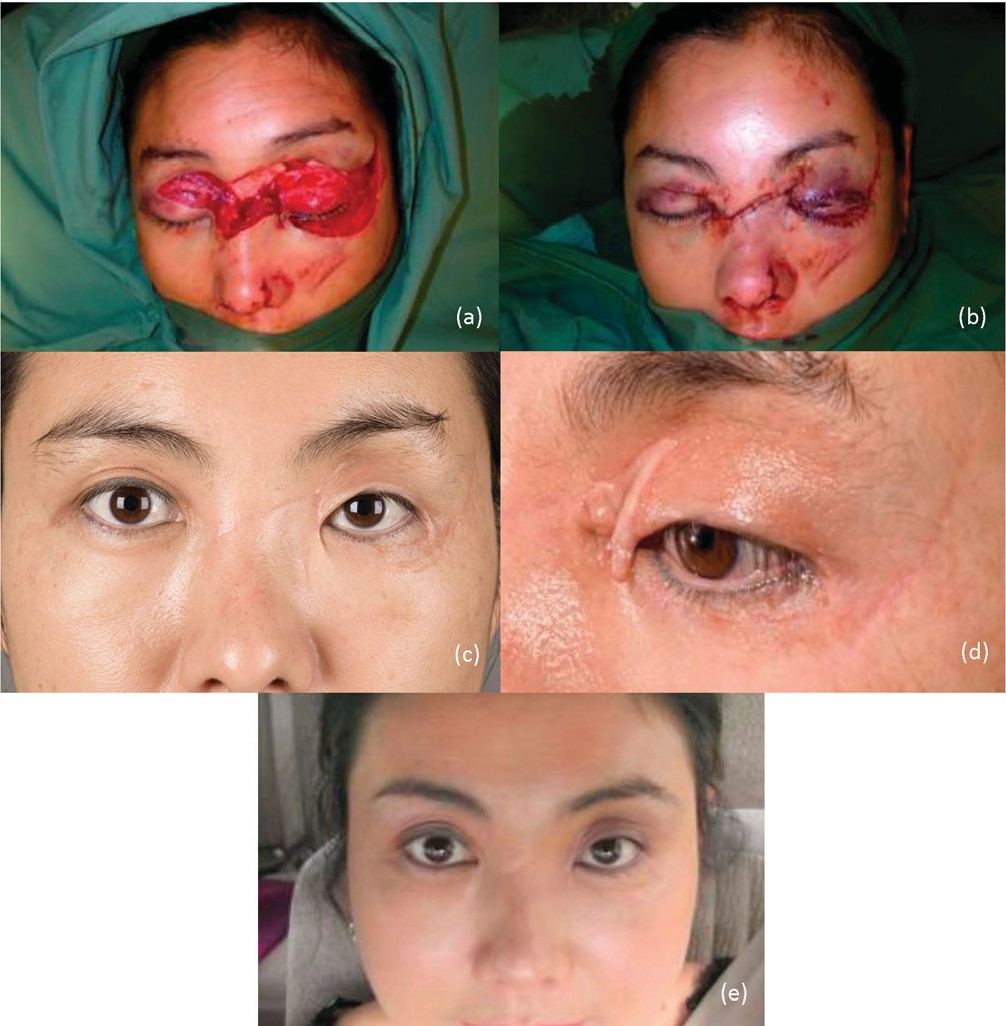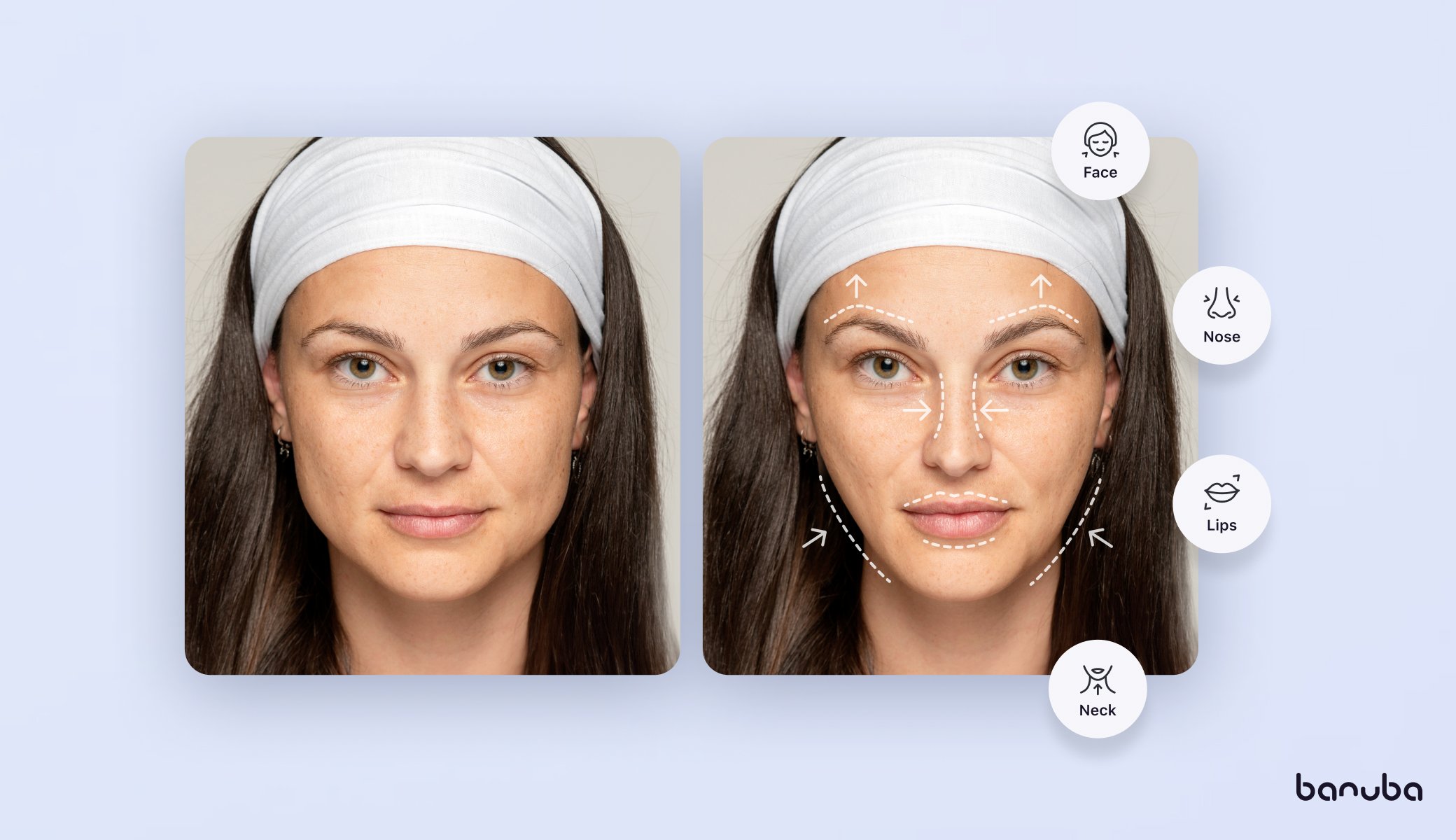Facelift Rancho Cucamonga: Smooth Wrinkles and Tighten Skin for a Younger Look
Facelift Rancho Cucamonga: Smooth Wrinkles and Tighten Skin for a Younger Look
Blog Article
Examining the Psychological and Social Factors That Drive Individuals to Take Into Consideration Plastic Surgery as a Way of Enhancement
The decision to pursue plastic surgery commonly extends past simple visual appeals, linking with social and mental characteristics that warrant thorough exam. Factors such as self-confidence, prevalent social beauty standards, and the pervasive influence of social networks assemble to form individual motivations for surgical improvement. As these influences end up being increasingly prominent, understanding the underlying psychological and cultural contexts is necessary. What stays to be discovered is the profound influence these variables have not just on individuality but likewise on wider social norms and worths surrounding appeal and approval.
The Function of Self-confidence
Self-confidence considerably affects a person's decision to seek cosmetic surgery. Individuals with low self-confidence frequently view themselves in a negative light, resulting in feelings of inadequacy concerning their physical appearance. This unfavorable self-perception can drive them to seek surgical interventions as a method of enhancing their self-image. The need for renovation in one's appearance is regularly linked to an idea that such modifications will certainly boost their overall self-respect and self-confidence.

Ultimately, the function of self-confidence in the decision-making procedure pertaining to plastic surgery highlights the complex interaction between body picture, individual fulfillment, and psychological health. Comprehending this connection is important for medical care experts to make sure that people are making notified decisions rooted in sensible assumptions and psychological well-being.
Societal Appeal Specifications
Influenced by pervasive media representations and cultural narratives, societal appeal requirements play an important role fit individuals' perceptions of their very own bodies. These standards are typically identified by an idealized kind of charm that highlights qualities such as symmetry, youthfulness, and slimness. As these ideals are continued with different channels, including advertising and marketing, movie, and tv, people regularly internalize these messages, causing frustration with their all-natural appearance.
The implications of these societal norms expand past visual choices; they can affect self-worth, mental health, and social relationships. People that perceive themselves as disappointing these standards may experience feelings of insufficiency, prompting a wish for plastic surgery as a way of achieving social authorization. This quest is frequently sustained by the idea that satisfying these suitables will certainly improve not only physical appearance however additionally social standing and individual fulfillment.

Impact of Social Media Site
The impact of social charm standards is more enhanced by the surge of social networks systems, where curated photos and idealized depictions of beauty are ubiquitous. Users are frequently revealed to like this filteringed system and edited photos, which frequently illustrate unattainable physical attributes. This direct exposure cultivates a society of comparison, leading people to analyze their own appearance against these typically impractical benchmarks.
Social network influencers and stars frequently advertise cosmetic procedures, normalizing the concept that medical improvements are a feasible means for achieving social ideals (plastic surgery rancho cucamonga). The exposure of these improvements can develop a perception that undergoing plastic surgery is a conventional technique, therefore influencing individuals to take into consideration similar treatments as a pathway to boosted self-esteem and social approval
In addition, the interactive nature of social media enables instant feedback through likes and comments, further reinforcing the wish to comply with popular elegance requirements. Such communications can worsen sensations of inadequacy and drive individuals towards cosmetic surgery as a way of getting validation. Ultimately, social networks plays an essential function in forming assumptions of charm, which substantially impacts the decision-making processes bordering plastic surgery.

Social Point Of Views on Look
Throughout various cultures, understandings of look are deeply rooted in historic, social, and financial contexts, forming individuals' views on beauty and charm. In many societies, look works as a substantial marker of identity, affecting social status, professional chances, and individual relationships. For instance, in some cultures, light skin is usually connected with riches and privilege, while others might idealize darker complexion as signs of toughness and authenticity.
Furthermore, typical elegance criteria are commonly continued via social stories, media depictions, and family affects, leading to varying perfects across different regions (plastic surgery rancho cucamonga). In Western societies, the emphasis on youth and physical health and fitness commonly drives people toward cosmetic improvement, while in certain Eastern societies, even more subtle modifications lined up with typical aesthetic appeals might be preferred
Globalization and the spreading of digital media have actually additionally complicated these dynamics, creating a hybridization of beauty perfects that transcends geographical borders. As people increasingly browse these cultural narratives, the stress to adapt specific appearance standards can bring about the desire for cosmetic surgery, mirroring a complicated interplay of personal aspirations and social worths. Understanding these social perspectives is vital in addressing the motivations behind cosmetic surgical procedure factors to consider.
Psychological Influences of Plastic Surgery
Several people sites looking for cosmetic surgery report experiencing extensive mental impacts that can considerably change their self-perception and emotional wellness - plastic surgery rancho cucamonga. The wish for physical enhancement usually comes from underlying concerns such as reduced self-confidence, body dysmorphic problem, or social stress regarding elegance standards. For some, the immediate post-operative phase can result in a momentary increase in positive self-image and contentment with their appearance, cultivating a feeling of empowerment
Nevertheless, these positive sensations may not be sustaining. Research suggests that while some patients experience improved self-esteem, others might deal with heightened anxiety or anxiety if their assumptions are not met. This disparity can develop from impractical suitables bolstered by media representation and social stories bordering beauty.
Moreover, the mental ramifications of plastic surgery prolong beyond the person. Relationships with family and buddies may be strained as social characteristics shift, leading to sensations of isolation or alienation. Inevitably, the mental influences of plastic surgery are intricate and complex, requiring cautious consideration by both possible people and doctor to ensure educated decision-making and realistic assumptions.
Conclusion
In final thought, the choice to go after cosmetic surgical procedure is substantially affected by a mix of self-worth concerns, societal elegance criteria, and cultural viewpoints on appearance. The pervasive reach of social networks better aggravates these stress, advertising impractical ideals that individuals commonly make every effort to acquire. Recognizing these social and psychological aspects is vital for dealing with the inspirations behind cosmetic surgical procedure, highlighting the demand for an extra nuanced discussion surrounding appeal and self-acceptance in modern society.
The choice to pursue cosmetic surgical procedure typically extends beyond mere looks, intertwining with social and emotional dynamics that merit extensive assessment. Eventually, social media plays a crucial role in helpful resources shaping assumptions of appeal, which significantly impacts the decision-making procedures surrounding cosmetic surgical procedure.
As individuals significantly browse these cultural stories, the pressure to conform to details look standards can lead to the need for cosmetic surgery, reflecting a complicated interplay of personal ambitions and social worths.In conclusion, the decision to go after cosmetic surgical procedure is substantially influenced by a combination of self-worth issues, societal elegance criteria, and social point of views on look. Comprehending these psychological and social factors is important for addressing the motivations behind cosmetic surgery, highlighting the need for a much more nuanced discussion bordering elegance and self-acceptance in contemporary culture.
Report this page